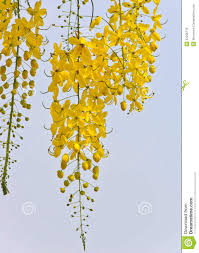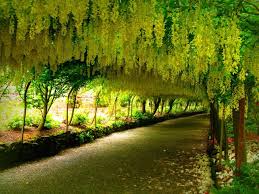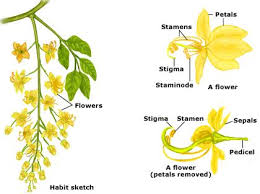Cassia fistula
Cassia fistula, known as the golden shower tree and by other names, is a flowering plant in the family Fabaceae. The species is native to the Indian Subcontinent and adjacent regions of Southeast Asia. It ranges from southern Pakistan eastward throughout India to Myanmar and Thailand and south to Sri Lanka. It is closely associated with the Mullai region of Sangam landscape. It is the national tree of Thailand, and its flower is Thailand's national flower. It is also state flower of Kerala in India and of immense importance amongst Malayali population. It is a popular ornamental plant and is an herbal medicine.



Kingdom: Plantae
(unranked): Angiosperms
(unranked): Eudicots
(unranked): Rosids
Order: Fabales
Family: Fabaceae
Genus: Cassia
Species: C. fistula

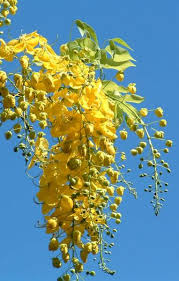
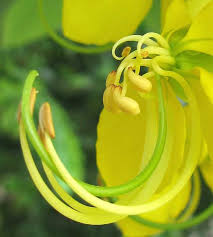
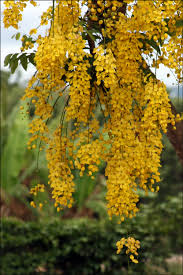



Description
The golden shower tree is a medium-sized tree, growing to 10–20 m (33–66 ft) tall with fast growth. The leaves are deciduous, 15–60 cm (5.9–24 in) long, and pinnate with three to eight pairs of leaflets, each leaflet 7–21 cm (2.8–8.3 in) long and 4–9 cm (1.6–3.5 in) broad. The flowers are produced in pendulous racemes 20–40 cm (7.9–16 in) long, each flower 4–7 cm (1.6–2.8 in) diameter with five yellow petals of equal size and shape. The fruit is a legume, 30–60 cm (12–24 in) long and 1.5–2.5 centimetres (0.59–0.98 in) broad, with a pungent odor and containing several seeds. The tree has strong and very durable wood, and has been used to construct "Ahala Kanuwa", a place at Adams Peak, Sri Lanka, which is made of Cassia fistula (ahala, ehela, or aehaela, ඇහැල in Sinhala heartwood.
Cultivation
Cassia fistula is widely grown as an ornamental plant in tropical and subtropical areas. It blooms in late spring. Flowering is profuse, with trees being covered with yellow flowers, many times with almost no leaf being seen. It will grow well in dry climates. Growth for this tree is best in full sun on well-drained soil; it is relatively drought tolerant and slightly salt tolerant. It will tolerate light brief frost, but can get damaged if frost persists. It can be subject to mildew or leaf spot, especially during the second half of the growing season. The tree will bloom better where there is pronounced difference between summer and winter temperatures.
In Ayurvedic medicine, the golden shower tree is known as aragvadha, meaning "disease killer". The fruit pulp is considered a purgative, and self-medication or any use without medical supervision is strongly advised against in Ayurvedic texts.
Though its use in herbalism has been attested to for millennia, rather little research has been conducted in modern times. The purgative action is probably due to abundant 1,8-dihydroxyanthraquinone and derivatives thereof.[citation needed] Many Fabaceae are sources of potent entheogens and other psychoactive compounds such as tryptamines; such plants are rarely found among the Caesalpinioideae.


